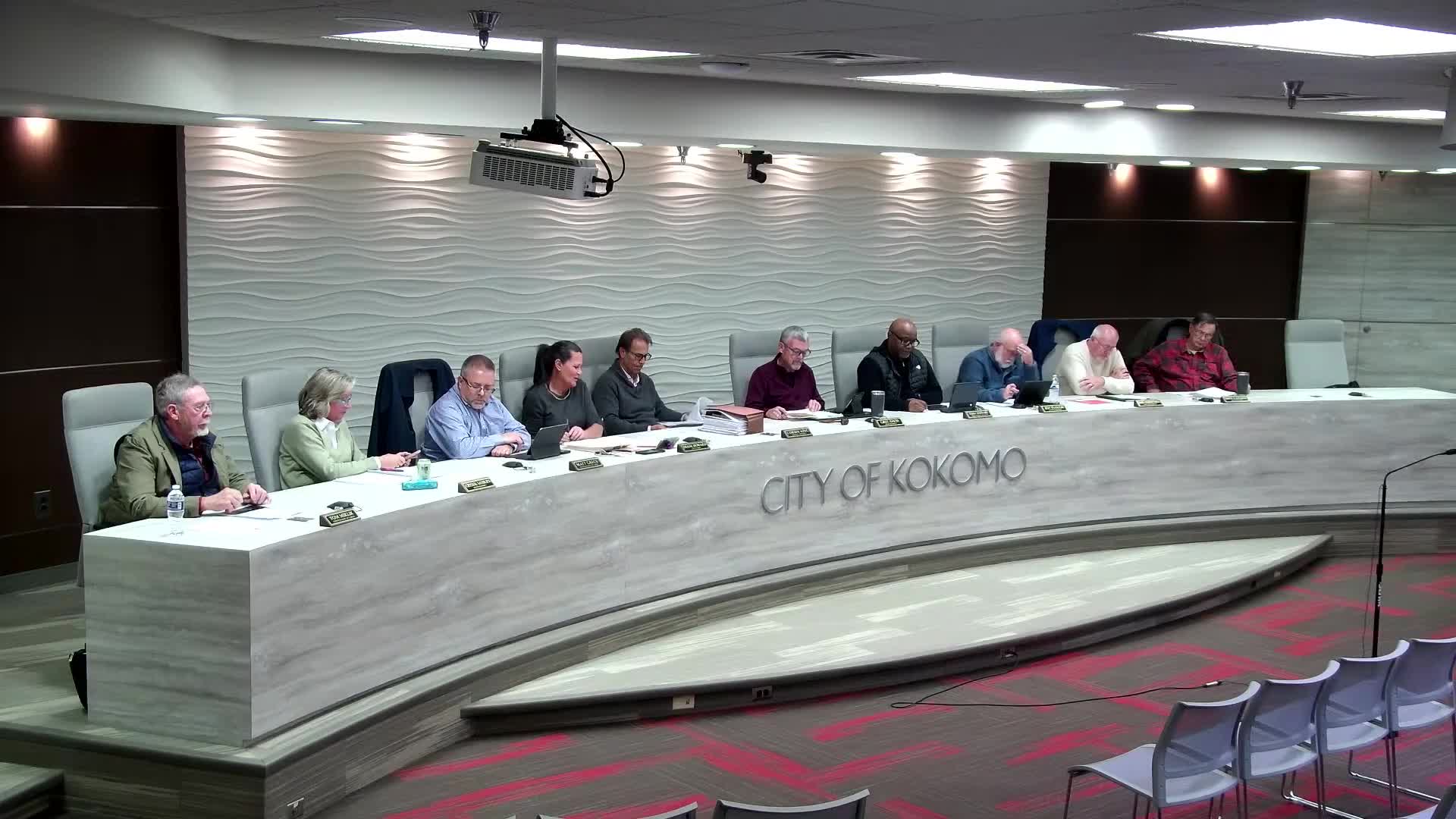Kokomo council authorizes bond cap up to $50 million for final sewer upgrades; rate increase set for Nov. 24 hearing
Get AI-powered insights, summaries, and transcripts
Subscribe
Summary
The Kokomo Common Council on first reading approved an ordinance authorizing up to $50 million in sewage-works revenue bonds to complete the final phase of the city’s combined-sewer-overflow work and scheduled a public hearing Nov. 24 on a proposed rate increase.
The Kokomo Common Council on first reading approved an ordinance allowing the city to issue sewage-works revenue bonds in an amount not to exceed $50,000,000 to complete the final phase of combined sewer overflow (CSO) work and related plant improvements.
John Pike, the city’s director of engineering, told the council the project is the last required phase of a long-term control plan tied to federal Clean Water Act requirements and an agreed order the city submitted in 2007. Pike said prior delays were caused by contaminated soils found during earlier work and that the base construction bid for the immediate interceptor replacement is roughly $24 million with a potential $8 million alternate, putting the likely range at about $24 million to $32 million. Pike said the city does not have sufficient current revenue to complete the work and therefore must borrow to finish the project.
“The fines that can be levied by the EPA, if we do not have this under contract by the end of this year, is $27,500 per day,” Pike said.
The ordinance text submitted by Councilman Micklek sets a not-to-exceed authorization of $50 million and allows the city to issue bonds in one or more series and, if necessary, bond anticipation notes to facilitate interim financing.
Council members pressed staff on why the ordinance authorizes up to $50 million when the immediate base bid is lower. Pike said the Indiana Department of Environmental Management (IDEM) had attached the city’s five-year capital-plan items to the long-term control plan, increasing the scope of projects that may need funding; the $50 million ceiling gives the city flexibility to cover multiple projects without returning to council for a new authorization.
Members of the public asked for more transparency about what additional projects are being rolled into the larger funding authorization and how costs would affect customers. Resident Steve Daley asked the council to publish a list of items and estimated costs included in the broader $50 million authorization and what the projected impact would be for property owners and utility customers. “I think the public deserves to see a list of those projects and what their estimated costs are,” Daley said.
Another resident, Rick Emery, asked whether past annexations increased stormwater loads and whether federal enforcement would be reduced; council and staff responded that IDEM is overseeing the city’s progress and granted a two-year extension in 2022.
In related action, the council introduced Ordinance 72-21 on first reading, which would raise sewage-works rates and charges. Staff cited a municipal-adviser report and said the ordinance amounts to $6.54 per 3,000 gallons on an annualized basis — roughly a $6-per-month increase for a typical household using 3,000 gallons — with detailed fees calculated by meter size and customer class. The ordinance was set for a public hearing and second reading at the Nov. 24 meeting.
Votes at the meeting were taken by voice; the presiding official announced the motions as passed. The council scheduled public comment and the formal rate hearing for Nov. 24, when the council will consider the second reading of the rates ordinance and hear members of the public.
What’s next: Ordinance 72-21 will return for a public hearing and second reading on Nov. 24; if the council approves rates at that hearing, the ordinance would take effect upon passage and the mayor’s signature as described in the ordinance text.
